GAM 2019 Blog
by Yukiko Shibata and Lina Canas
- Published: Tuesday, April 23 2019 06:27
Although many excellent resources in astronomy education and outreach exist worldwide, most of them are only available in English, thus preventing non-English speakers to have access to them. Language barriers often cause individuals to reinvest time and funding over and over on the same resources, while translations and localization could be used instead. Recognizing this issue, the IAU Office for Astronomy Outreach (IAU OAO) along with the National Astronomical Observatory of Japan (NAOJ), identified the need of a global network for translations to centralize worthy resources and connect translation needs to volunteers, thus leading to the creation of the IAU Astronomy Translation Network.
The Astronomy Translation Network (ATN) currently has nearly 380 volunteers registered across 45 languages. The project established various Language Groups: Portuguese, Malay, French, Indonesian, Spanish, Simplified Chinese, Traditional Chinese, Filipino and Polish and to this date, around 80 documents have undergone the full translation workflow and have been published (available in PDF and DOC format) for download. Another 30 documents are currently being worked on by our volunteers. The completed translations are systematically published with credits to the translators, proofreaders and scientific reviewers.
Securing the quality of the translations
The Astronomy Translation Network (ATN) has created a volunteer network able to support translation needs and provide worthy astronomy materials accessible to everyone without the language barrier while preserving their high quality. While building an online community able to exchange, connect, support and learn from each other.
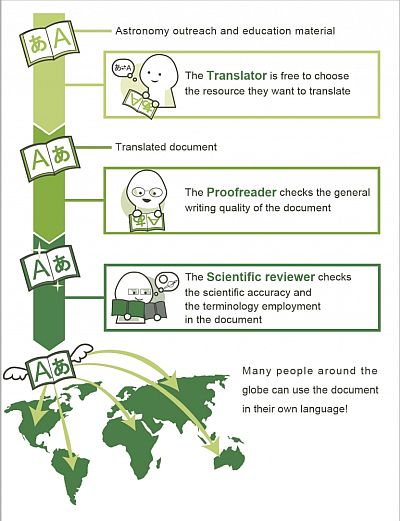
To ensure the quality of our translated documents, we developed a three-step process workflow: after translation, proofreaders will check the general writing quality. And before publication, scientific reviewers would check the scientific accuracy and the use of terminology. (Image Credit: IAU OAO / ATN)
To facilitate the workflow of translations within the same language, we established Language Groups. These groups are set up once the number of volunteers for one language reaches ten volunteers. We then proceed to nominate a Language Coordinator, in charge of supervising the translation activities of their group. The Language Coordinators are also the primary contact point between the project manager and the volunteers.
After a first stage, where the workflow of the platform was tested, the project launched officially in June 2018. The operational phase with 151 volunteers on the network, speaking 42 local and national languages. The first pool of resources consisted of twenty materials from the IAU astroEDU project -- peer-reviewed activities for science education; the IAU website FAQs and Themes, and activities of astronomy for inclusion. New items to translate have been increasing by suggestions and requests of users. Accordingly we are challenging different format resources such as subtitles of astronomy TV programs, software guides and global event postcards. Our website allows us to present our project, publish our translated documents, and provide our volunteers online tools like astronomy glossaries and translations guides to help them in their tasks.
2019 Special Projects
IAU 100 years celebrations
In 2019, the International Astronomical Union (IAU) commemorates its 100th anniversary and is organising a year-long celebration to increase awareness of a century of astronomical discoveries as well as to support and improve the use of astronomy as a tool for education, development and diplomacy under the central theme "100 Years: Under One Sky" (IAU100) and the ATN is actively contributing with translations of some of the IAU100 Global Projects.
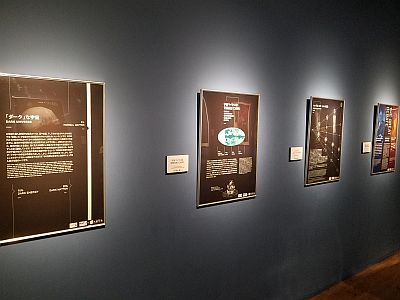
The Japanese translation is provided by a collaborative effort from the Astronomy Translation Network (ATN), managed by the IAU Office for Astronomy Outreach (OAO).
International Year of Indigenous Languages
The United Nations declared 2019 The Year of Indigenous Languages (YIL2019) to raise the appreciation of our world’s rich cultural diversity through awareness of the alarming rate languages around the world are disappearing. Languages play a crucial role in the daily lives of people, not only as a tool for communication, education, social integration and development, but also as a repository for each person’s unique identity, cultural history traditions and memory. (Source YIL2019)
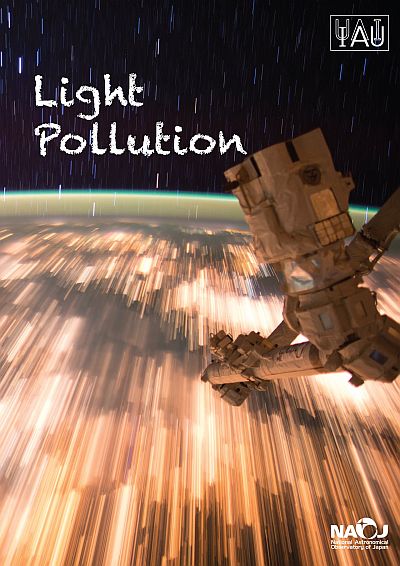
Light pollution brochure. Image Credit: IAU OAO.
The IAU Office for Astronomy Outreach through the Astronomy Translation Network (ATN) has joined the celebrations of the International Year of Indigenous Languages by launching the challenge to our community of translating two astronomy related resources into endangered languages. One of the resources chosen is the IAU100 unifying moto “100 Years: Under One Sky” and celebrating the strong cultural connection to the night sky through dark skies protection and light pollution awareness materials.
About the IAU
The IAU is the largest association of professional astronomers with more than 12 000 members in nearly 100 countries worldwide and its mission is to promote and safeguard the science of astronomy in all its aspects through international cooperation.
| Yukiko Shibata is the project manager of the Astronomy Translation Network and International Outreach Officer for the IAU Office for Astronomy Outreach (OAO). With a degree of Earth Science and a Masters in Science, Media Communication, Yukiko Shibata has worked as a communicator in a science museum and for public relations in research institutes. | 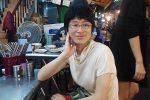 |
| Lina Canas joined the International Astronomical Union (IAU) in 2015 and is currently the International Outreach Coordinator for the IAU Office for Astronomy Outreach (OAO), based at the National Astronomical Observatory of Japan (NAOJ). With a degree in Astronomy and a Masters in Geophysics, Lina Canas has worked for the past thirteen years in astronomy outreach and education. | 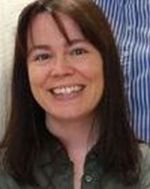 |






